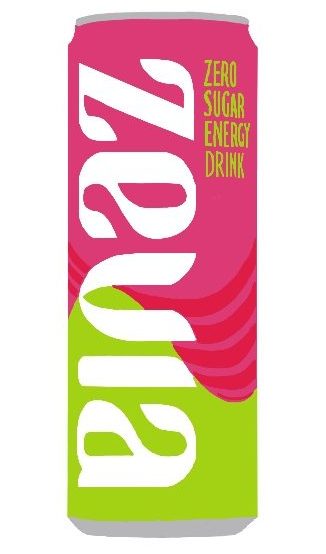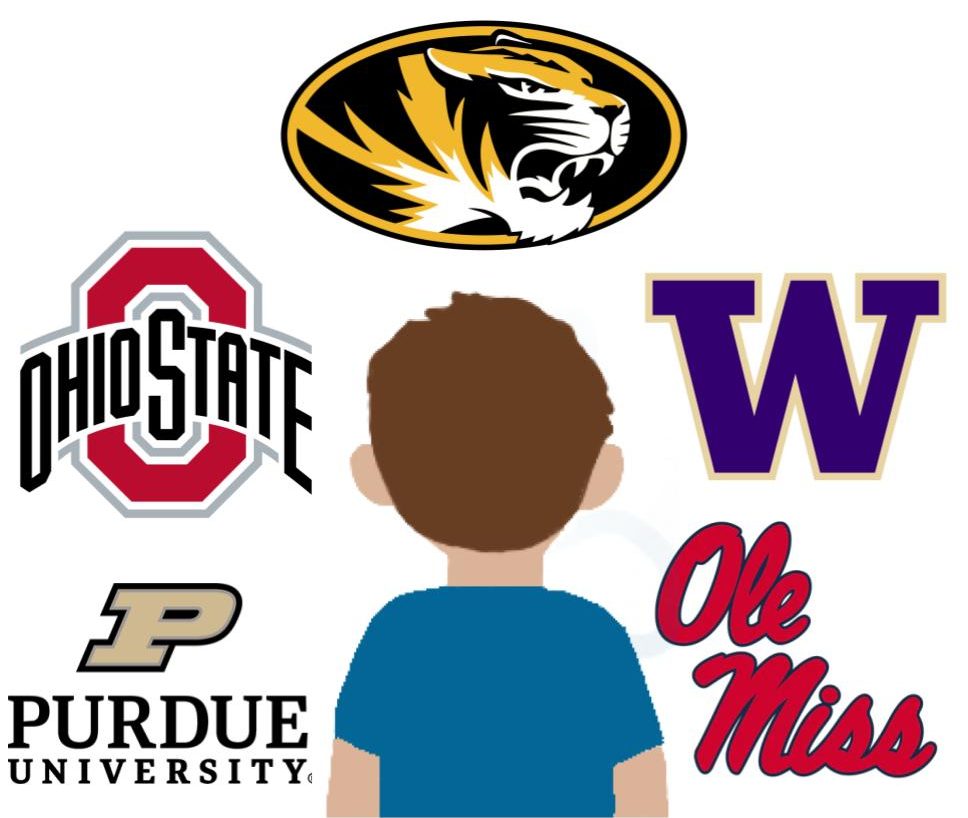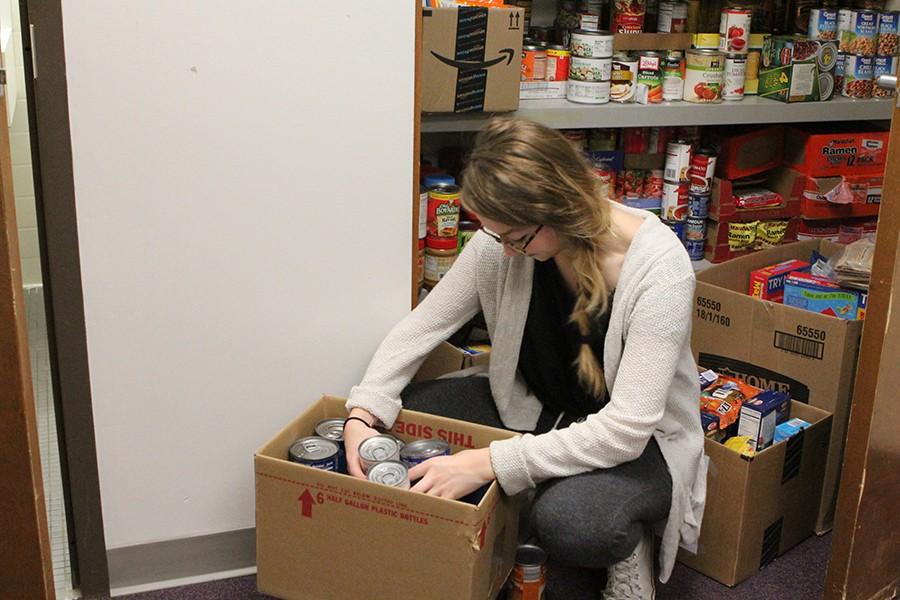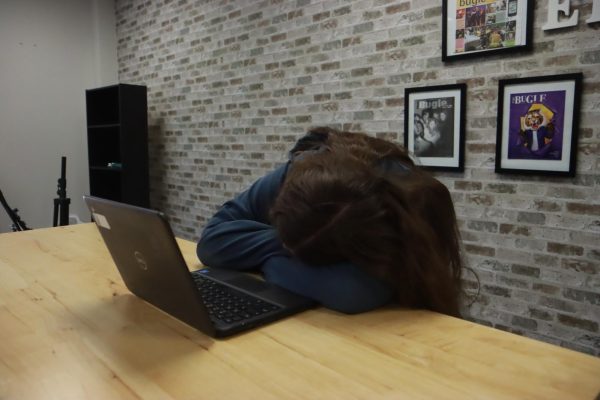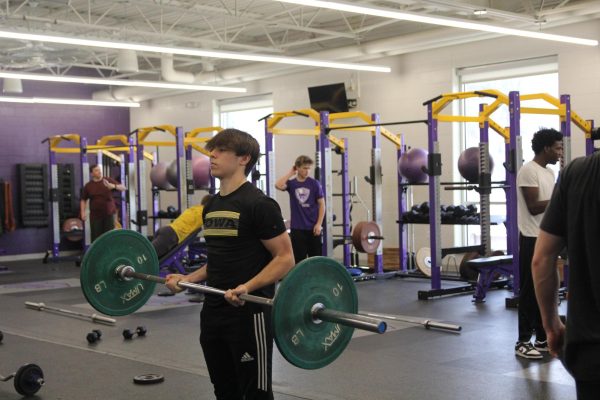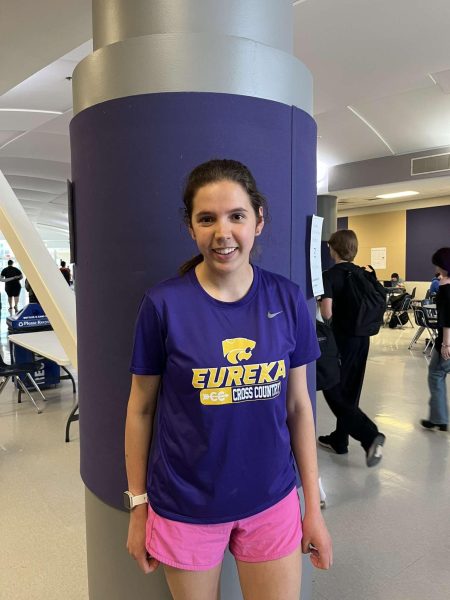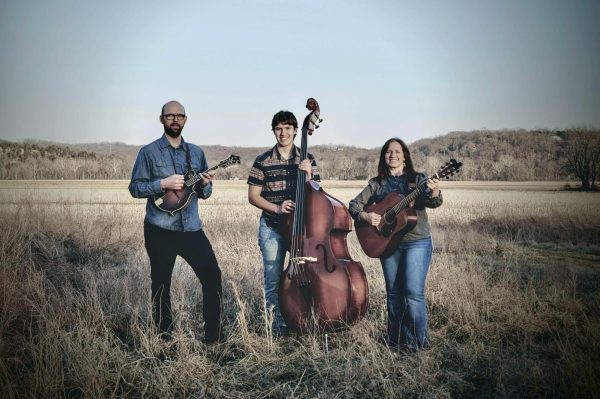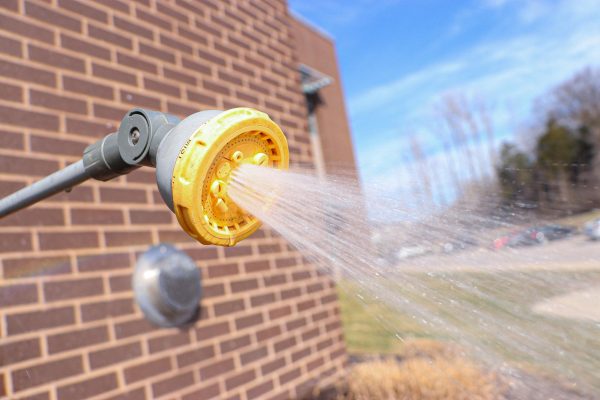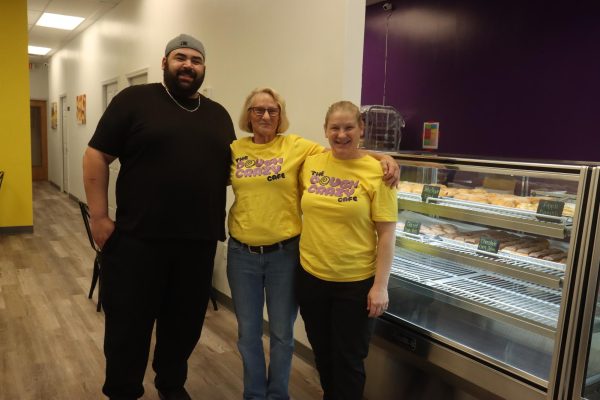Got your back(pack)
Maddie Rose Ortinau, officer, sorting cans in officer Mike Smith’s office, Nov. 18.
With the help of StuCo, a program called Got Your Backpack has been launched at EHS.
Got Your Backpack provides students in need with a backpack filled with canned food items every week to take home for the weekend. The cans provide them meals on the days that aren’t provided with free breakfast and lunch at school.
According the Official United States Department of Agriculture Food plans, the low-cost plan for a family of four with kids nine years and older is about $198.40 per week. That adds up to about $793.60 per month, a hefty price tag that is not easy to pay for, for some families.
“When these kids take the bags home, it lessens the burden on their families in times when they don’t have enough to provide every meal for their kids,” Maddie Rose Ortinau, GYB student rep, said. “I mean, these bags make the difference between whether a kid gets to eat dinner or not,”
StuCo’s annual canned food drive collected around 28,000 cans schoolwide. The number of cans going towards the GYB program here is currently being figured out.
In previous years, GYB was supplied by the food pantry at Fairway Elementary School. The pantry there serves several different schools in the district through Got Your Backpack.
The idea of starting a food pantry here started last year. This year, the idea became a reality.
Instead of running from a central location, having a pantry here is much more convenient for the students who benefit from it.
“It allows us that kind of flexibility,” Ms. Naomi Warren, EHS social worker, said.“So if we know whether students have access to a microwave or not, we can make sure we have items in their bags to fit their needs.”
Flexibility is not the only advantage to having an on-site pantry. The close proximity of it may more strongly motivate people to donate.
“It will be closer, which will make people want to donate more,” Layla Safi (10) said. “It will be less of a hassle and it will help feed more families in Eureka.”
The program currently serves around 12-15 students and their families between EHS and the Individualized Learning Center.
Helping out people with something as simple, but essential, as food could improve their lives by giving them one less issue to worry about.
Students with not enough food to eat face issues besides the immediate one of hunger. It disrupts their ability to focus in an educational environment.
“That [not having enough to eat] has educational implications,” Ms. Warren said. “When students skip breakfast and haven’t eaten the night before and are hungry, that has real physical and physiological consequences to their ability to learn at school.”
Ms. Rachael Haywood, a teacher who donated, agreed.
“If you look at Maslow’s Hierarchy of needs and start at the bottom of the pyramid, we have to have food,” Ms. Haywood said. “If we don’t have food, who cares about what Mrs. Haywood is talking about in her child development class or who cares what is on your AP Stat test. You are worried about where your next meal is coming from, so we need to make sure students have their most basic needs met.”
The student struggling with their basic necessities may be sitting right next to you in class. According to the Got Your Backpack informational page, there are currently 180 homeless Rockwood students. 32 percent of those students reside in the county and 68 percent reside in the city.
“We always think about homelessness being an issue,” Zoe Rich, junior class president, said. “but never one that affects people around us and in our school.”
There are several students walking around without much stability in their lives. Meanwhile, most students go about their days not acknowledging their privilege and don’t realize how they have the ablitity to help.
Events such as StuCo’s annual canned food drive and programs such as GYB bring the community a renewed spirit for giving.
The food drives themselves not only directly benefit the students in need but can impose an enlightened perspective on the entirety of the community.
“It could also be very rewarding on those who contribute in helping because it is always better to give than receive,” Cole Reat (12) said.
“It helps people in our school to realize hunger and poverty aren’t just problems that affect other places,” Rich said. “ They affect our school and the people in it.”
With this energized spirit for giving, the future of the GYB program looks bright, but not without hard work. The EHS community has the job of ensuring the prosperity and continuation of this program.
“Got Your Backpack is a necessity at Eureka for the same reason that it is anywhere else, and that’s because there’s always somebody that needs help,” Ortinau said. “One bag at a time, GYB is helping to build up and strengthen the Eureka Community.”
Instilling GYB as a priority will keep it relevant in people’s minds.
“In order to make GYB successful, as a student body we need to maintain an awareness of the fact that there are always people that are in need of help, even in our own school,” Ortinau said.
Publicizing the program to gain support is another method. The support could come in the form of food donations or by volunteering their time to help organize the food.
Regular reminders would help the program to gain constant support throughout the entire year.
“Making it known to all of the kids by telling them about it and how it can help,” Safi said. “Hanging up posters and announcing it over the intercom would help, too.”
The success of Got Your Backpack relies on the generosity of the EHS community’s donations in order to keep this program running and be of service to people. With all of the students and staff donating various items such as cans of vegetables, boxes of pasta, and mac and cheese, GYB is sure to thrive and help many students.
Your donation will support the student journalists of Eureka High School - MO. Your contribution will allow us to purchase equipment and cover our annual website hosting costs.
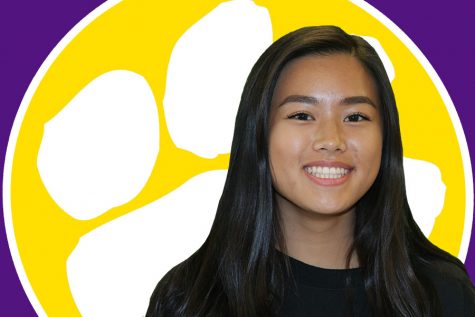
This is Keana’s third semester on a publications staff. She is the ads manager.
You can follow her on Twitter @khoEHS_hub. All of Keana’s school...



